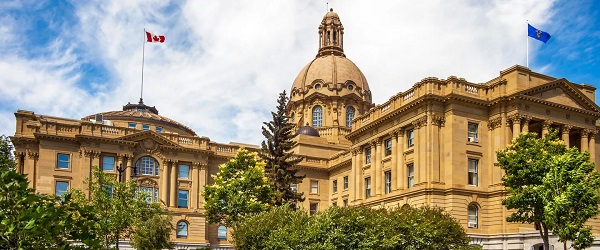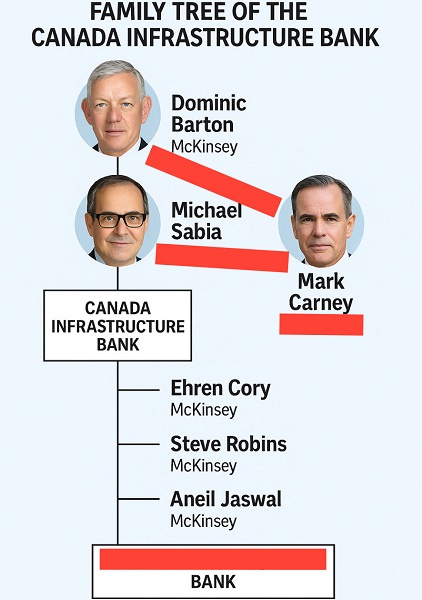Aristotle Foundation
The Canadian Medical Association’s inexplicable stance on pediatric gender medicine

By Dr. J. Edward Les
The thalidomide saga is particularly instructive: Canada was the last developed country to pull thalidomide from its shelves — three months during which babies continued to be born in this country with absent or deformed limbs
Physicians have a duty to put forward the best possible evidence, not ideology, based treatments
Late last month, the Canadian Medical Association (CMA) announced that it, along with three Alberta doctors, had filed a constitutional challenge to Alberta’s Bill 26 “to protect the relationship between patients, their families and doctors when it comes to making treatment decisions.”
Bill 26, which became law last December, prohibits doctors in the province from prescribing puberty blockers and hormone therapies for those under 16; it also bans doctors from performing gender-reassignment surgeries on minors (those under 18).
The unprecedented CMA action follows its strongly worded response in February 2024 to Alberta’s (at the time) proposed legislation:
“The CMA is deeply concerned about any government proposal that restricts access to evidence-based medical care, including the Alberta government’s proposed restrictions on gender-affirming treatments for pediatric transgender patients.”
But here’s the problem with that statement, and with the CMA’s position: the evidence supporting the “gender affirmation” model of care — which propels minors onto puberty blockers, cross-gender hormones, and in some cases, surgery — is essentially non-existent. That’s why the United Kingdom’s Conservative government, in the aftermath of the exhaustive four-year-long Cass Review, which laid bare the lack of evidence for that model, and which shone a light on the deeply troubling potential for the model’s irreversible harm to youth, initiated a temporary ban on puberty blockers — a ban made permanent last December by the subsequent Labour government. And that’s why other European jurisdictions like Finland and Sweden, after reviews of gender affirming care practices in their countries, have similarly slammed the brakes on the administration of puberty blockers and cross-gender hormones to minors.
It’s not only the Europeans who have raised concerns. The alarm bells are ringing loudly within our own borders: earlier this year, a group at McMaster University, headed by none other than Dr. Gordon Guyatt, one of the founding gurus of the “evidence-based care” construct that rightfully underpins modern medical practice, issued a pair of exhaustive systematic reviews and meta analyses that cast grave doubts on the wisdom of prescribing these drugs to youth.
And yet, the CMA purports to be “deeply concerned about any government proposal that restricts access to evidence-based medical care,” which begs the obvious question: Where, exactly, is the evidence for the benefits of the “gender affirming” model of care? The answer is that it’s scant at best. Worse, the evidence that does exist, points, on balance, to infliction of harm, rather than provision of benefit.
CMA President Joss Reimer, in the group’s announcement of the organization’s legal action, said:
“Medicine is a calling. Doctors pursue it because they are compelled to care for and promote the well-being of patients. When a government bans specific treatments, it interferes with a doctor’s ability to empower patients to choose the best care possible.”
Indeed, we physicians have a sacred duty to pursue the well-being of our patients. But that means that we should be putting forward the best possible treatments based on actual evidence.
When Dr. Reimer states that a government that bans specific treatments is interfering with medical care, she displays a woeful ignorance of medical history. Because doctors don’t always get things right: look to the sad narratives of frontal lobotomies, the oxycontin crisis, thalidomide, to name a few.
The thalidomide saga is particularly instructive: it illustrates what happens when a government drags its heels on necessary action. Canada was the last developed country to pull thalidomide, given to pregnant women for morning sickness, from its shelves, three months after it had been banned everywhere else — three months during which babies continued to be born in this country with absent or deformed limbs, along with other severe anomalies. It’s a shameful chapter in our medical past, but it pales in comparison to the astonishing intransigence our medical leaders have displayed — and continue to display — on the youth gender care file.
A final note (prompted by thalidomide’s history), to speak to a significant quibble I have with Alberta’s Bill 26 legislation: as much as I admire Premier Danielle Smith’s courage in bringing it forward, the law contains a loophole allowing minors already on puberty blockers and cross-gender hormones to continue to take them. Imagine if, after it was removed from the shelves in 1962, government had allowed pregnant women already on the drug to continue to take thalidomide. Would that have made any sense? Of course not. And the same applies to puberty blockers and cross-gender hormones: they should be banned outright for all youth.
That argument is the kind our medical associations should be making — and would be making, if they weren’t so firmly in the grasp, seemingly, of ideologues who have abandoned evidence-based medical care for our youth.
J. Edward Les is a Calgary pediatrician, a senior fellow with the Aristotle Foundation for Public Policy, and co-author of “Teenagers, Children, and Gender Transition Policy: A Comparison of Transgender Medical Policy for Minors in Canada, the United States, and Europe.”
Aristotle Foundation
B.C. Supreme Court takes an axe to private property rights

Native rights are constitutionally guaranteed; property rights are not. When courts recognize Aboriginal title, it’s easy to see who will win
Think you own your private property? Well think again, as a recent court decision has thrown the entire basis of property ownership into chaos in British Columbia.
In the ultimate “land acknowledgement,” the B.C. Supreme Court released a bombshell judgment last week declaring Aboriginal title for the Cowichan Tribes of Vancouver Island to around 325 hectares on the mainland, in the city of Richmond.
This is the first time a court has declared Aboriginal title over private land in the province, setting a deeply concerning precedent if the ruling is not successfully overturned following an appeal promised by B.C.’s attorney general.
In another troubling precedent, the court also declared that fee simple land titles — the typical form of private property ownership in Canada — in the area are “defective and invalid,” on the basis that the Crown had no authority to issue them in the first place.
As constitutional law professor Dwight Newman points out, if past fee simple grants in areas of Aboriginal title claims are inherently invalid, “then the judgment has a much broader implication that any privately owned lands in B.C. may be subject to being overridden by Aboriginal title.”
The only thing preventing the judge from making a similar declaration over privately held land in the new Aboriginal title area is the fact that the Cowichan did not ask for a declaration to this effect.
But nothing prevents that from happening in the future if the judgment stands. The judge actually contemplates this very scenario, writing that, “Fee simple interests … will go unaffected in practice when Aboriginal title is recognized over that land, unless or until the Aboriginal title holder successfully takes remedial action in respect of the fee simple interests.”
In short, while most private landowners assume their title to their own land is bulletproof, the ruling states: It “cannot be said that a registered owner’s title under the (Land Title Act) is conclusive evidence that the registered owner is indefeasibly entitled to that land as against Aboriginal title holders and claimants.”
It’s worth noting that the claim was contested by two mainland Indigenous groups, the Musqueam and Tsawwassen First Nations, both of whom lay claim to the same land. This highlights the issue of competing claims in a province where the vast majority of the land mass is claimed as traditional territory by one or more of B.C.’s 200-plus Indigenous groups.
While two previous decisions by the Supreme Court of Canada recognized Aboriginal title in British Columbia (Tsilhqot’in in 2014 and Nuchatlaht in 2024), neither declared it over privately held lands as this one does.
Even as the B.C. government has promised to appeal the decision, it has been pursuing similar policies outside the courts. The province controversially overlaid Aboriginal title on private land with its problematic Haida Nation Recognition Act in 2024. The act was specifically referenced by the plaintiffs in the Cowichan case, and the judge agreed that it illustrated how Aboriginal title and fee simple can “coexist.”
This is a questionable assertion given the numerous legal concerns. As one analysis explains, private property interests and the implementation of Aboriginal title are ultimately at odds: “The rights in land which flow from both a fee simple interest and Aboriginal title interest … include exclusive rights to use, occupy and manage lands. The two interests are fundamentally irreconcilable over the same piece of land.”
While the government claims it adequately protected private property rights in the Haida agreement, Aboriginal title is protected under the Constitution, while private property rights are not. When these competing interests are inevitably brought before the courts, it’s easy to imagine which one will prevail.
The fact that B.C. Premier David Eby said last year that he intended to use the Haida agreement as a “template” for other areas of B.C. stands in marked contrast with his sudden interest in an appeal as a means of preserving clear private property titles in the wake of this politically toxic ruling.
Indeed, Eby’s government continues to negotiate similar agreements elsewhere, including with the shíshálh Nation on B.C.’s Sunshine Coast, even as government documents admit that Aboriginal title includes the right to “exclusively use and occupy the land.”
Eby’s commitment to an appeal suggests he may have learned from his costly refusal to appeal a 2021 B.C. Supreme Court decision, which found that excessive development had breached the treaty rights of the Blueberry River First Nation. Eby’s government chose to pay out a $350-million settlement to avoid further litigation, a move that ultimately backfired when the two parties ended up back in court.
But for now, the consequences of the Cowichan decision have created considerable uncertainty for property owners, businesses and general market confidence. The judge’s own words sum it up: “The question of what remains of Aboriginal title after the granting of fee simple title to the same lands should be reversed. The proper question is: what remains of fee simple title after Aboriginal title is recognized in the same lands?”
If there’s one positive aspect to this decision, it’s that it is so extreme, it will force the Eby government’s radical Indigenous policies onto the public agenda as awareness builds over what’s at stake.
From its incessant land acknowledgements, to MLAs referring to non-Indigenous British Columbians as “uninvited guests,” to its embrace of the United Nations Declaration on the Rights of Indigenous Peoples and its land back policies, to undemocratic land use planning processes and the overlaying of Aboriginal title on private lands, B.C. government policy has long been headed in exactly this direction.
Now, a reckoning is coming, and it’s of the government’s own creation. The broader issue will soon overtake all others in the public eye, and the premier must decide now whether he’ll start walking things back, or double down on his disastrous course.
Caroline Elliott is a senior fellow with the Aristotle Foundation for Public Policy and sits on the board of B.C.’s Public Land Use Society.
Photo: WikiCommons.
Aristotle Foundation
Judges should interpret law—not make public policy from the bench
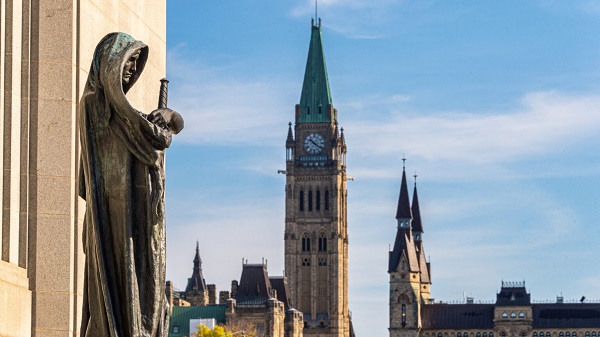
By Bronwyn Eyre
To understand how politicized Canada’s courts have become, one must understand how judges once viewed their role—not as policymakers, but interpreters of laws and the Constitution.
In 1982, the late Supreme Court of Canada Chief Justice Bora Laskin said judges have “no freedom of speech to address political issues that have nothing to do with judicial duties… Absolute abstention from political activity is one of the guarantees of impartiality, integrity and independence.”
That was then. Post-Charter (also introduced in 1982), too many judges have internalized the “living tree doctrine”—that the Constitution continually adapts to “evolving” social and political contexts—and are increasingly advancing expansive positions based on political ideology.
The result is that governments, elected to pass legislation, are unable to tackle important issues from homelessness to climate policy without being overruled by the courts. They are spending millions fighting Charter challenges—often brought by only a handful of complainants.
Just recently, Ontario’s Superior Court sided with just two University of Toronto students to stop the provincial government from dismantling bike lanes to ease traffic congestion. Under the Charter’s Section 7 (Life, Liberty, and Security of the Person), the government cannot, ruled the court, “knowingly make the streets less safe.” Talk about begging the question. Meanwhile, an effort by the Ontario government to dismantle drug injection sites, including near schools and daycares, is on pause pending another Section 7 legal challenge.
In another case with major precedent impact across the country, Ontario’s Superior Court held in 2023 that homeless encampments must effectively remain in place until shelter spaces are found for every resident. The City of Waterloo’s attempt, via municipal bylaw, to dismantle a 70-structure homeless encampment on city property was held to violate—once again—Section 7 of the Charter. Stated the court: “The constitutional right to shelter is invoked when the number of homeless exceeds available and truly accessible shelter spaces.”
The same court agreed in 2023 with just seven environmental activists challenging Ontario’s climate plan that it is an “indisputable fact that Ontarians are experiencing an increased risk of death” from climate change.
According to Ecojustice lawyer Fraser Thomson, who represented the activists, the ruling “effectively boxes Ontario in and subjects its climate record to full Charter scrutiny.” The Supreme Court recently denied Ontario’s appeal request in the case, which is now heading back to court. This, as similar youth-led climate cases are making their way through the courts in other provinces.
Meanwhile, last month’s International Court of Justice’s ruling that a clean environment is a “human right” was hailed by climate activists as a major victory which will inform future court decisions and legal challenges—including to the new federal major projects Bill C-5.
Courts ought not be the exclusive arbiters of social and economic policy—genuine concerns about issues such as climate policy or homelessness, notwithstanding.
So, what to do?
For now, premiers are increasingly looking to the Notwithstanding Clause. Routinely called the “nuclear option,” it’s actually a perfectly legitimate use of Section 33 of the Charter—and the most powerful tool governments have to assert parliamentary sovereignty.
A constitutional scholar and former NDP premier of Saskatchewan, Allan Blakeney, would agree. Blakeney fought hard for the clause’s inclusion in the Charter and wrote, in 2010, that the state could invoke it for “economic or social reasons, or because other rights are more important.”
Let’s not forget that from 1982 to 1985, Quebec “notwithstood” everything—and that doesn’t mean one must agree with its every usage. The point, à la Blakeney, is that it is the only mechanism to reassert some parliamentary supremacy. More recently, Quebec and Alberta have talked about forming an “autonomy alliance,” which would create a “special deliberation mechanism for legislative bills and include the Notwithstanding Clause to dissuade court challenges.”
If only such a mechanism could reform federal catch-and-release laws.
In 2023, Justice Harrison Arrell released violent offender Randall McKenzie, citing Criminal Code-embedded bail rules that mandate “vulnerable population” considerations. “It’s a very iffy case,” Arrell wrote. “I appreciate all the violence in his record, but part of that is his native background, education and employment opportunities.”
Six months later, McKenzie killed OPP Constable Greg Pierzchala. The shocking case highlighted 2018 federal Criminal Code amendments, which codified the “principle of restraint”—that bail must be granted at the “earliest possible opportunity” on the “least onerous conditions.”
Despite limited subsequent tweaks to the Criminal Code by the federal government, nothing fundamentally has changed.
When asked whether Canada is “soft on crime,” Sean Fraser, Canada’s new minister of justice and attorney general, said we “can’t operate in the space of slogans and soundbites.”
Indeed.
Hon. Bronwyn Eyre, LLB, is a Senior Fellow with the Aristotle Foundation for Public Policy, Saskatchewan’s former minister of justice and attorney general—the first female to hold each position—and a former long-serving minister of energy.
Photo: iStock.
-

 Alberta2 days ago
Alberta2 days agoAlberta’s E3 Lithium delivers first battery-grade lithium carbonate
-
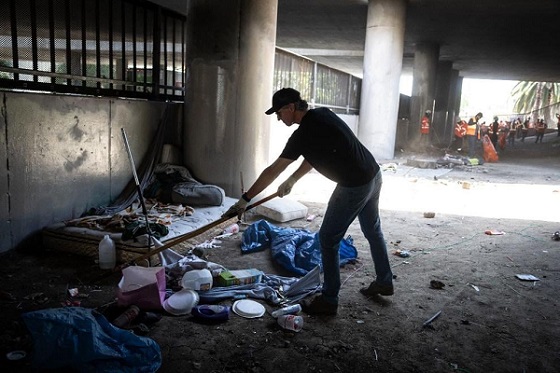
 Business2 days ago
Business2 days agoLA skyscrapers for homeless could cost federal taxpayers over $1 billion
-

 Artificial Intelligence2 days ago
Artificial Intelligence2 days agoAI chatbots a child safety risk, parental groups report
-

 Energy2 days ago
Energy2 days agoNuclear power outperforms renewables every time
-

 Censorship Industrial Complex2 days ago
Censorship Industrial Complex2 days agoHurting someone’s feelings could be punishable under Canadian hate crime bill: legal expert
-

 Automotive2 days ago
Automotive2 days agoCanada’s EV subsidies are wracking up billions in losses for taxpayers, and not just in the auto industry
-

 Crime1 day ago
Crime1 day agoThe “Strong Borders Act,” Misses the Mark — Only Deep Legal Reforms Will Confront Canada’s Fentanyl Networks
-
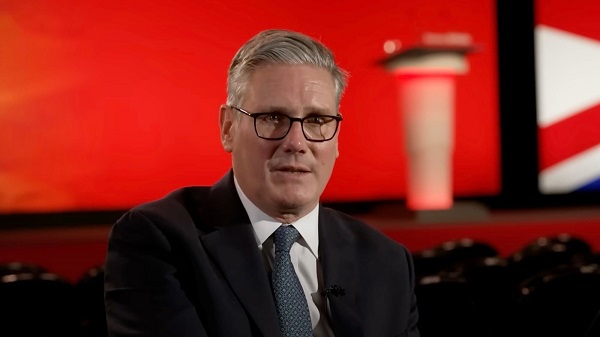
 Business1 day ago
Business1 day agoUK Government Dismisses Public Outcry, Pushes Ahead with Controversial Digital ID Plan





